
Introduction
Empathy is our ability to sense other people’s emotions and understand how they may be feeling. It is about seeing things from someone else’s perspective and imagining ourselves in their position.
Practising empathy helps us to connect and relate well with other people in our lives. By being empathetic we can better “read” another person’s inner state and interpret it without blaming, giving advice, or attempting to fix the situation.
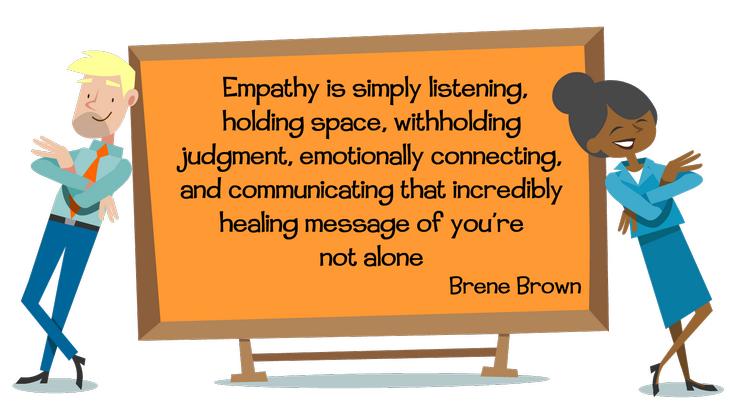
Like any other behavioural skill, empathy can be cultivated through intentional effort and practice. Here are 10 ways that we will help us to be more empathetic:
1. Expand your world view
Our world view is a framework of beliefs, values and attitudes which affects everything we perceive, think, feel, and do. As we evolve, we can become restricted by the boundaries of what we experience, so constantly expanding our world view will help us to be more empathetic. Expanding our horizons by embracing new experiences will also help us to develop as well- rounded, balanced, and inclusive human beings.

2. Put yourself in others’ shoes
To practise empathy there is a very useful skill that can help called “perspective taking”. This is about consciously putting ourselves in someone else’s shoes and imagining what challenges they might be facing and how it could be making them feel, think and behave.
This mindset shift helps to ensure that we stay in an empathic state. By attempting to imagine what it would be like to experience what they are going through helps us to gain a better understanding of things from their point of view.
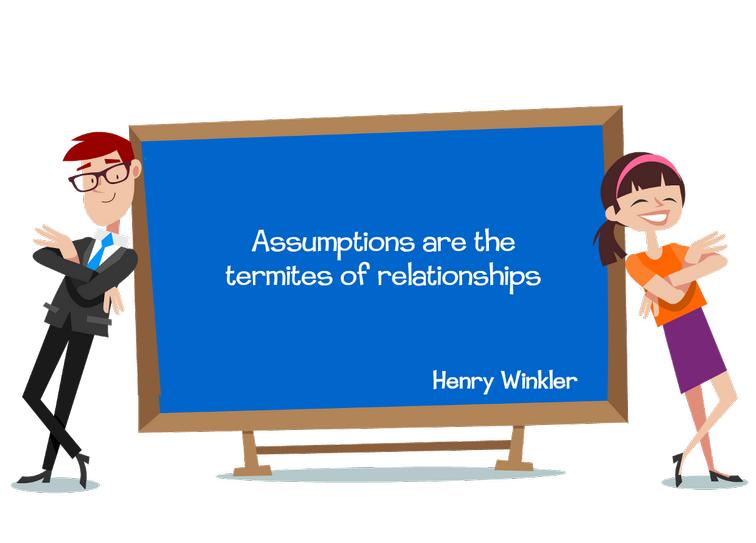
3. Challenge assumptions
We all hold unconscious beliefs and bias, and this could well be about various social and identity groups. This bias is triggered by the brain making quick judgments and assessments of people and situations. Often this is influenced by our own background, societal stereotypes, and personal experience.
To be truly empathetic we need to constantly be aware of and challenge our biases about people and stereotyping. We may well discover that many of the assumptions we make are based on erroneous information. Educating ourselves and listening to the groups that are affected by this misinformation is a good place to start.
4. Be curious
Being curious enables us to seek out challenges and new experiences so that we can broaden our horizons. Curiosity is the gateway to wisdom and life is never dull for a curious person with a growth mindset.
Being curious rather than judgmental about people is a great place to start and finding everyone we meet interesting can be the catalyst for some great conversations.
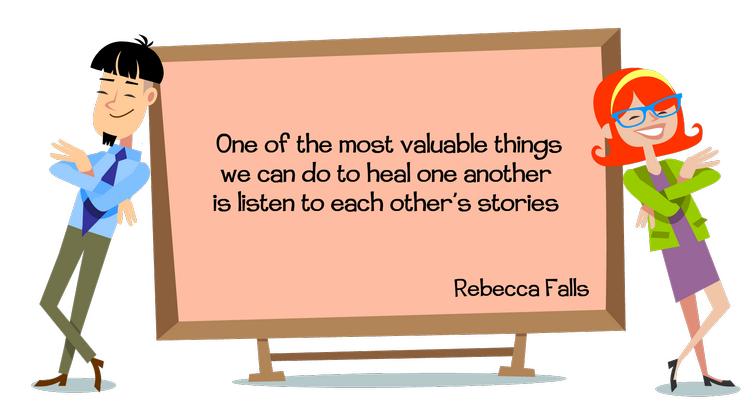
5. Be fully present
Being fully present requires us to make a conscious decision to give the other person our undivided attention. So being aware of any potential distractions is important, as well as setting aside our own internal mind chatter so that we can focus on what the other person is saying.
Empathetic people have a way of making us feel as if we are the only person in the room. This is also a sign of respect and can be quite a rarity in today’s hyper-distracted world.
6. Listen actively
Listening is one of the most powerful and constructive ways that we can demonstrate empathy. When we practise active listening, we are listening with purpose and with a deep desire to want to really hear what someone is saying. Empathetic people take the time to understand the other person’s priorities and motivations. To do this it is important to stay focused and use active listening skills to gain insight.
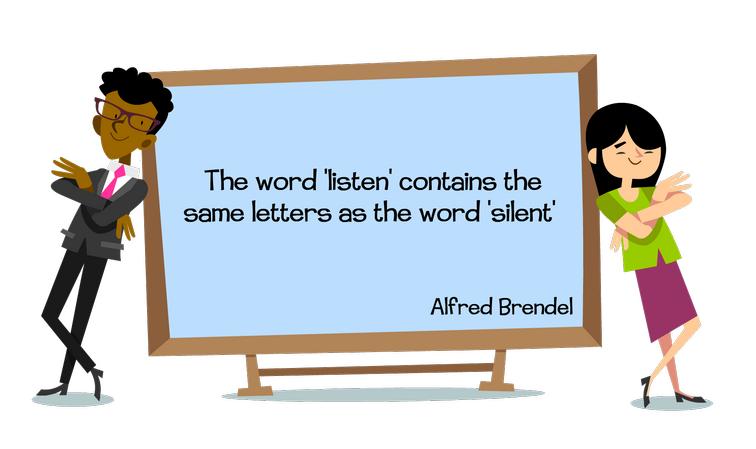
7. Respect silence
How comfortable are you with a pause in a conversation and a moment of silence?
To be helpful sometimes we may feel the urge to fill the void and jump in to finish people’s sentences, offer them some advice, or even interrupt. Silence can be a very powerful way to simply “be” with another person and allow them the space to collect their thoughts and feel calm.

8. Acknowledge emotions
When we acknowledge something, it means we are recognising its value and importance. Emotional validation involves understanding and showing acceptance of how another person may be feeling. This helps the person we are empathising with to know that their feelings are being seen, heard, and accepted.
Emotional acknowledgement can help us to establish rapport and interpersonal trust. It can also help others to define how they may be feeling and encourage them. By allowing emotions to flow freely it can also help people to release pent up stress and ultimately feel calmer.
9. Tune into non-verbal communication
Communication runs far deeper than words alone and during a conversation we may observe the other person dodging eye contact, tensing up or shifting about awkwardly. These are important non-verbal signs, and we will then be able to use our powers of empathy by gently asking the other person to describe what is happening for them. This will encourage them to share their feelings openly, knowing that they won’t be judged or criticised.
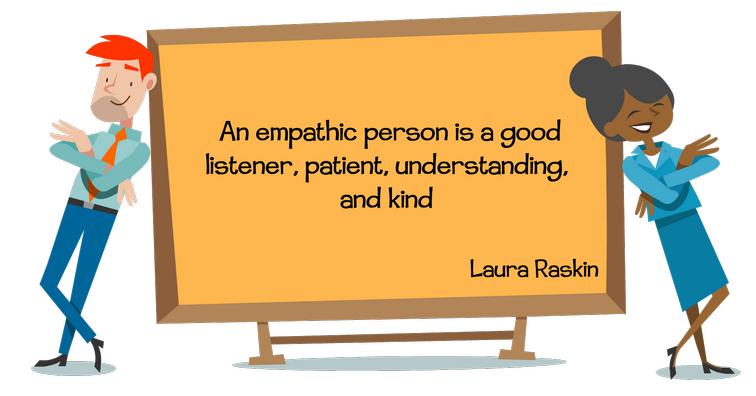
10. Question empathetically and use empathetic language
Empathetic questioning is asking questions with the intention of seeking to understand how someone is feeling. This helps the other person to express what is really going on and gently probing questions can also help them to understand their own situation better.
The language we use and the tone we adopt is a major step toward cultivating an empathic attitude. Being tactful and diplomatic is very important and this is the subtle and skilful art of handling a delicate interaction with sensitivity and emotional intelligence.
In summary
By being empathetic and understanding we can support others in feeling psychologically safe enough to share openly and honestly. This will also help the other person to feel that they are not entirely isolated and enable them to recover and grow stronger in the knowledge that they have a kind and caring supporter.
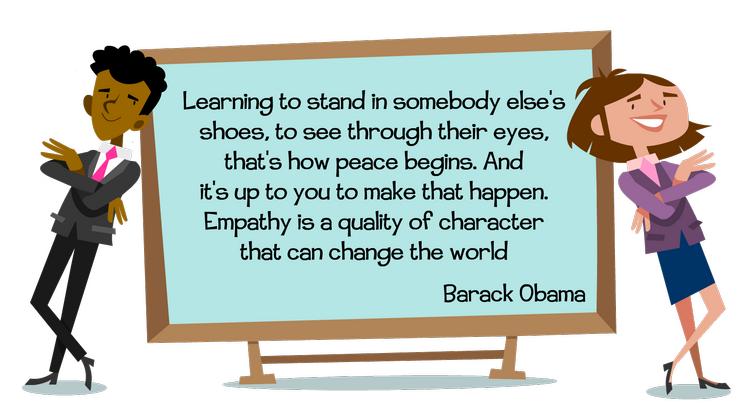
For updates for future blogs, free webinars and various other useful resources please do join my newsletter.


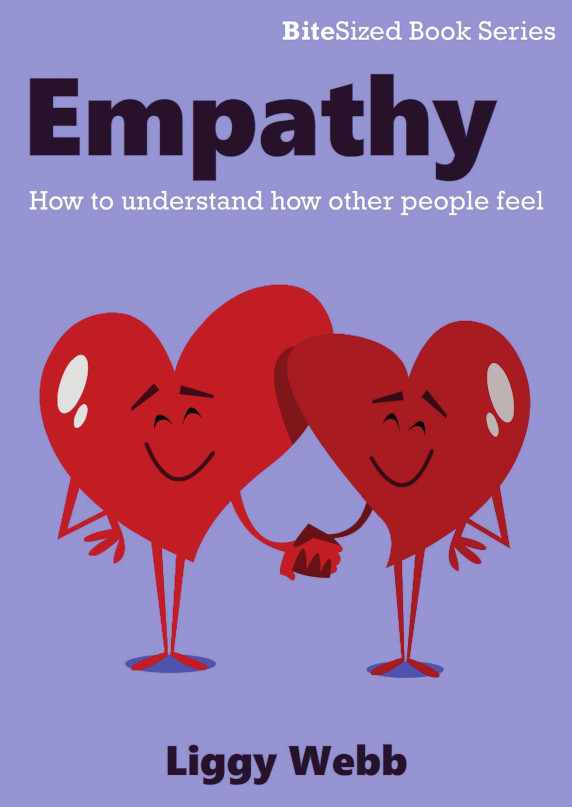
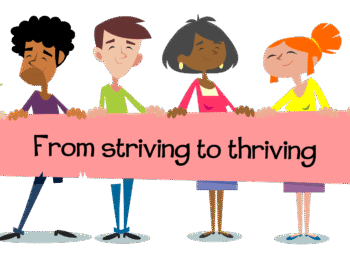






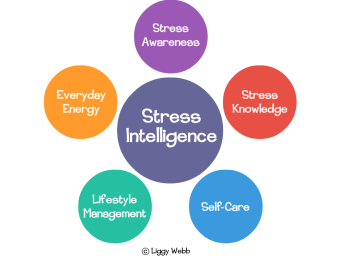


 How to fuel yourself well
How to fuel yourself well

